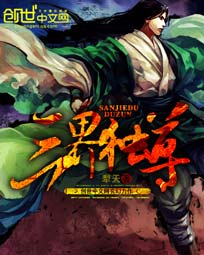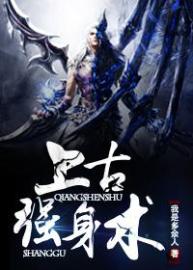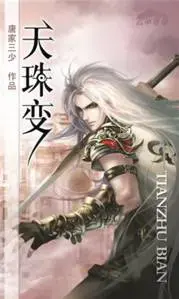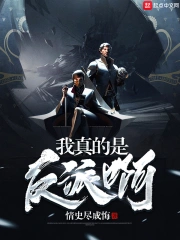The Story in 3 Sentences
A fallen Celestial Emperor’s son, Jiang Chen, reincarnates into the body of a despised noble youth, forced to rebuild his power from the absolute bottom in a world that scorns him.
His journey shifts from navigating petty kingdom politics to dominating the vast, treacherous landscapes of the Human Domain, leveraging his ancient knowledge and ruthless cunning to outmaneuver emperors and sects.
The story’s direction arcs towards cosmic sovereignty, as Jiang Chen ascends through countless realms, ultimately challenging the heavens themselves to reclaim his lost glory and reshape reality.
Why It Stands Out
1. The OG Face-Slapping Blueprint
This novel didn’t just popularize the trope; it weaponized it. Jiang Chen’s victories are less about brute force and more about the devastating, often hilarious, humiliation of arrogant foes who underestimate the quiet genius. It’s a masterclass in cathartic wish-fulfillment, turning every sneer into a setup for a spectacular fall, making readers cheer with every meticulously planned takedown.
2. The Alchemist Emperor
While many protagonists fight, Jiang Chen often conquers through commerce and creation. His unparalleled mastery of pill crafting isn’t just a side skill; it’s his primary weapon and currency. He manipulates entire economies, bribes emperors, and builds empires not just with his fists, but with his cauldron, offering a refreshingly cerebral and strategic layer to the xianxia power fantasy.
3. A World Built to be Conquered
The sheer, staggering scale is the point. From a single Eastern Kingdom to the Veluriyam Capital and beyond, the world feels vast, ancient, and layered with history and power structures designed for Jiang Chen to dismantle. It’s an epic, sprawling canvas that justifies its immense length, inviting readers on a grand tour of cultivation realms where every new location promises fresh challenges and higher stakes.
Characters That Leave a Mark
There’s Young Master Fan – the charismatic and powerful heir of Sacred Peafowl Mountain, whose initial rivalry with Jiang Chen evolves into a complex relationship marked by mutual respect and strategic alliance within the treacherous politics of Veluriyam Capital.
You’ll meet Emperor Peafowl, who stands as the venerable and immensely powerful ruler of Sacred Peafowl Mountain and a dominant force in Veluriyam Capital, a figure whose ambitions and paternalistic guidance create both opportunities and formidable obstacles for Jiang Chen’s rise.
And Pill King Hui? They’re the one who serves as Pillfire City’s half-step pill emperor and a key subordinate to Emperor Pillzenith, embodying the pinnacle of pharmaceutical power that Jiang Chen must eventually surpass and confront, representing the established order in the pill dao that the protagonist seeks to revolutionize.
The Flaws Fans Debate
The narrative is frequently bogged down by extreme repetition, with entire paragraphs and chapters rehashing information or internal monologues already established.
The pacing is glacial, with major plot points stretched thin over hundreds of chapters, filled with filler dialogue and seemingly pointless scenes that add little to character or plot development.
Many supporting characters are given significant spotlight only to be completely forgotten or rendered useless shortly after, making their arcs feel like wasted time and emotional investment.
Must-Experience Arcs
Ch. 1–89: A Shadowy Rise – Witness Jiang Chen’s shocking reincarnation and his initial, cunning maneuvers to survive and gain power in the Eastern Kingdom, setting the foundation for his underdog legend with political intrigue and early face-slapping.
Ch. 702–986: Veluriyam Capital – Follow Jiang Chen as he enters the dazzling, cutthroat city of emperors, navigating its complex social hierarchies, powerful factions like Sacred Peafowl Mountain, and high-stakes pill competitions that cement his reputation on a continental scale.
Ch. 1300–1465: The Final Ascent – Experience the climax as Jiang Chen, now a peerless powerhouse, confronts his ultimate adversaries like Emperor Pillzenith, battles for the fate of realms, and makes his final, godlike push towards true sovereignty over the Three Realms.
Killer Quotes
“He who adheres to me shall ascend, those who oppose me can find solace in hell!”
“No one has the right to call himself a genius in front of Jiang Chen, as no one has a better understanding of the heavens than the son of the Heavenly Emperor.”
Cultural Impact
It’s considered a foundational, “OG” classic in the English-translated xianxia genre, shaping reader expectations for decades with its tropes and scale.
The term “face-slapping” became almost synonymous with this novel for many early web novel fans, defining a whole subgenre of satisfying comeuppance.
Its immense length and notorious pacing have become memes within the community, with readers bonding over the shared, sometimes frustrating, marathon experience of completing its 2000+ chapters.
Final Verdict
Start Here If You Want:
The pure, unadulterated power fantasy of watching an underdog systematically dismantle every arrogant opponent.
A story where intelligence, strategy, and alchemy are just as important as raw martial power.
An epic, world-spanning journey that offers a complete, albeit lengthy, saga from zero to cosmic hero.
Study If You Love:
The intricate, often satirical, portrayal of power structures and social climbing within a cultivation society.
The evolution of xianxia tropes and how this novel codified many of the genre’s most popular elements.
The thematic exploration of reincarnation, legacy, and the burden of godlike knowledge in a mortal world.
Avoid If You Prefer:
Tight, fast-paced narratives without any filler or repetition.
Stories where every side character has a meaningful, lasting impact on the plot.
Novels that avoid harem elements or protagonists who operate with a more morally ambiguous, ruthless pragmatism.





